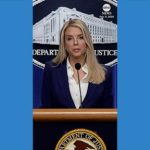White House Grants TikTok a 90-Day Extension Amid Ongoing Security Debates
U.S. Government Delays TikTok Deadline to Address Security Challenges
On Wednesday, the White House declared a 90-day extension for TikTok’s operational deadline in the United States. This decision reflects persistent concerns over national security risks tied to the app’s data privacy practices and its ownership by the Chinese company ByteDance. The extension postpones any immediate bans or forced divestitures, allowing additional time for negotiations aimed at resolving these critical issues.
Several factors influenced this extension, including:
- Ongoing evaluation of TikTok’s data protection measures
- Continued dialogue with ByteDance to explore structural changes
- Efforts to develop a robust framework ensuring user data security
| Extension Details | Consequences | Planned Actions |
|---|---|---|
| 90-Day Postponement | Temporary relief for TikTok’s U.S. operations | Comprehensive security audits and negotiations |
| Heightened Security Scrutiny | Increased oversight by federal agencies | Implementation of stricter compliance standards |
| Possible Outcomes | Ownership restructuring or potential ban | Final determination after extension period |
Assessing the 90-Day Extension’s Effect on User Data Privacy
The additional 90 days granted to TikTok introduces a complex dynamic in the ongoing debate over data privacy. Security analysts and lawmakers are divided: some view the extension as a valuable opportunity for regulators to deepen their risk assessments and for TikTok to bolster its encryption and clarity protocols. This period could enable the company to implement stronger safeguards against unauthorized foreign access to sensitive user details.
Conversely, critics warn that prolonging the deadline may perpetuate vulnerabilities, leaving user data exposed amid unresolved questions about data governance and control. The following table highlights key privacy components under review during this extended timeframe:
| Privacy Aspect | Current Condition | Extension Impact |
|---|---|---|
| Encryption Standards | Partially implemented with ongoing localization efforts | Additional time to enhance and verify encryption methods |
| Access to User Data | Lacks full transparency; jurisdictional ambiguities persist | Risk of maintaining existing opaque controls without reform |
| Transparency Reporting | Irregular and limited in scope | Opportunity to increase frequency and detail of disclosures |
- Advantages: Extended timeframe for regulatory scrutiny and potential improvements in data security.
- Disadvantages: Prolonged exposure to privacy risks and possible delays in enforcing decisive policies.
Broader Consequences for U.S.-China Technology Relations
The decision to prolong TikTok’s deadline underscores the delicate balance the U.S. government seeks between safeguarding national security and fostering technological innovation amid escalating tensions with China. This delay not only postpones a definitive resolution for TikTok but also signals the intricate challenges regulators face when addressing Chinese tech companies operating in the American market.
Key developments to monitor include:
- Stricter oversight of international data transfers and privacy safeguards
- Accelerated efforts to achieve technological self-sufficiency, especially in semiconductors and software
- Potential expansion of export controls targeting critical technology sectors
- Diplomatic initiatives aimed at managing tech rivalry without escalating conflicts
| Industry | U.S. Policy Direction | Anticipated Chinese Response |
|---|---|---|
| Social Media Platforms | Enforcement of rigorous app governance standards | Promotion and advancement of domestic alternatives |
| Semiconductor Manufacturing | Increased investment in domestic chip production | National initiatives to secure supply chains |
| Artificial Intelligence & Software | Heightened export restrictions on advanced technologies | Boosted R&D and strategic partnerships with allied nations |
Guidance for TikTok Users During the Review Extension
With the TikTok operational deadline extended by three months, users are encouraged to exercise caution regarding their app usage and data sharing habits. Keeping the app updated is crucial to benefit from the latest security enhancements. Additionally, reviewing and tightening privacy settings can help users better control their personal information amid ongoing uncertainties.
Security experts recommend adopting the following best practices to reduce potential risks during this period:
- Limit the amount of personal information shared publicly on profiles
- Avoid linking TikTok accounts with other sensitive online services
- Be vigilant against suspicious links or unsolicited messages within the app
- Enable two-factor authentication to strengthen account security
| Recommended Action | Security Benefit |
|---|---|
| Regular App Updates | Access to latest security patches and features |
| Privacy Settings Review | Reduces unnecessary data exposure |
| Two-Factor Authentication | Provides an additional layer of account protection |
| Restrict Data Sharing | Minimizes risk of personal information misuse |
Conclusion: Navigating TikTok’s Future Amid Security and Policy Challenges
The White House’s decision to grant TikTok a further 90-day extension reflects the ongoing complexity of balancing national security priorities with the realities of global technology markets.While this additional time allows for more comprehensive reviews and negotiations, the ultimate fate of TikTok’s presence in the U.S. remains uncertain. As the deadline approaches once again, stakeholders—including policymakers, industry leaders, and users—will continue to scrutinize developments closely, underscoring the broader conversation about data privacy, foreign influence, and technological sovereignty in the digital age.








